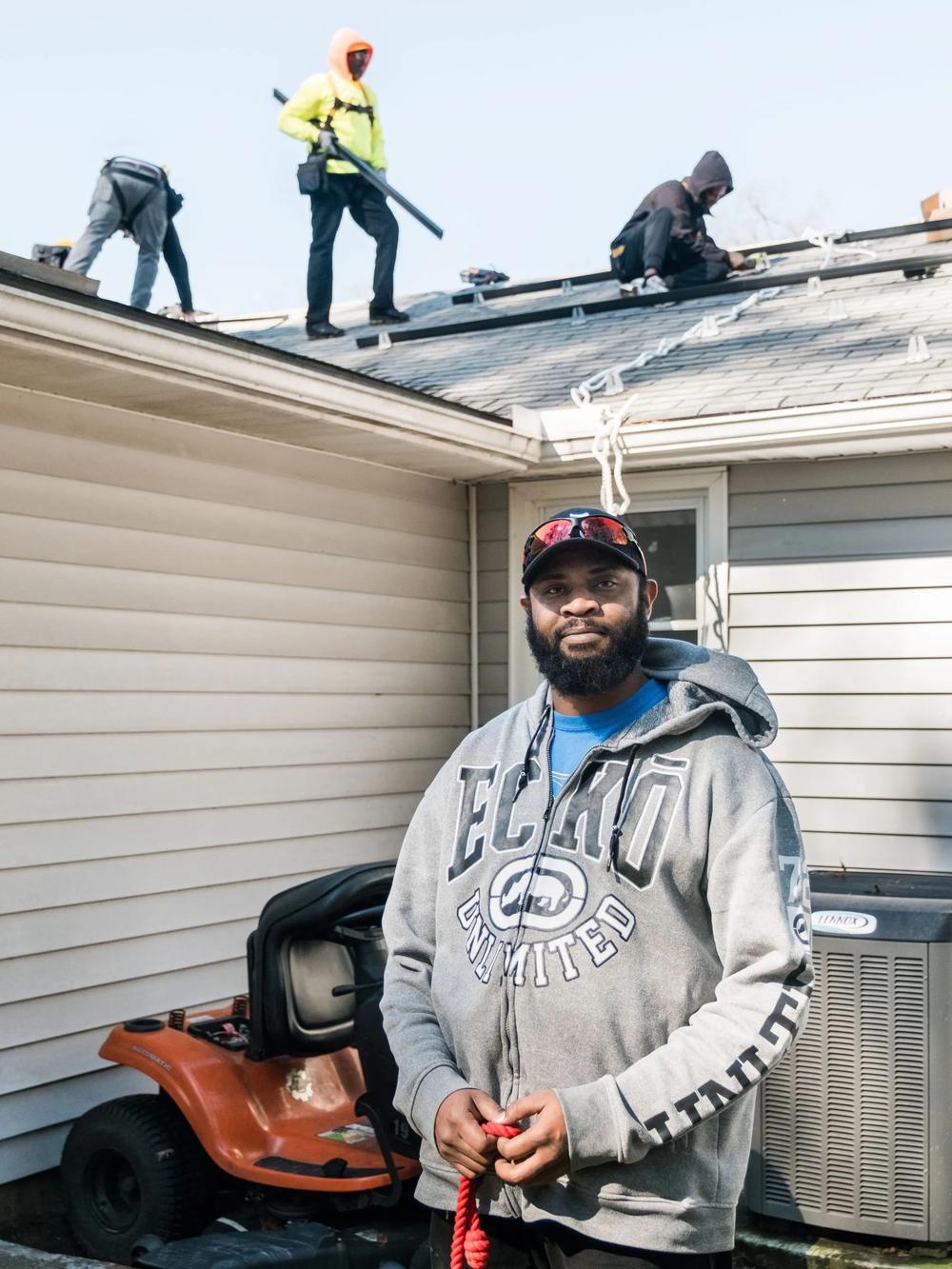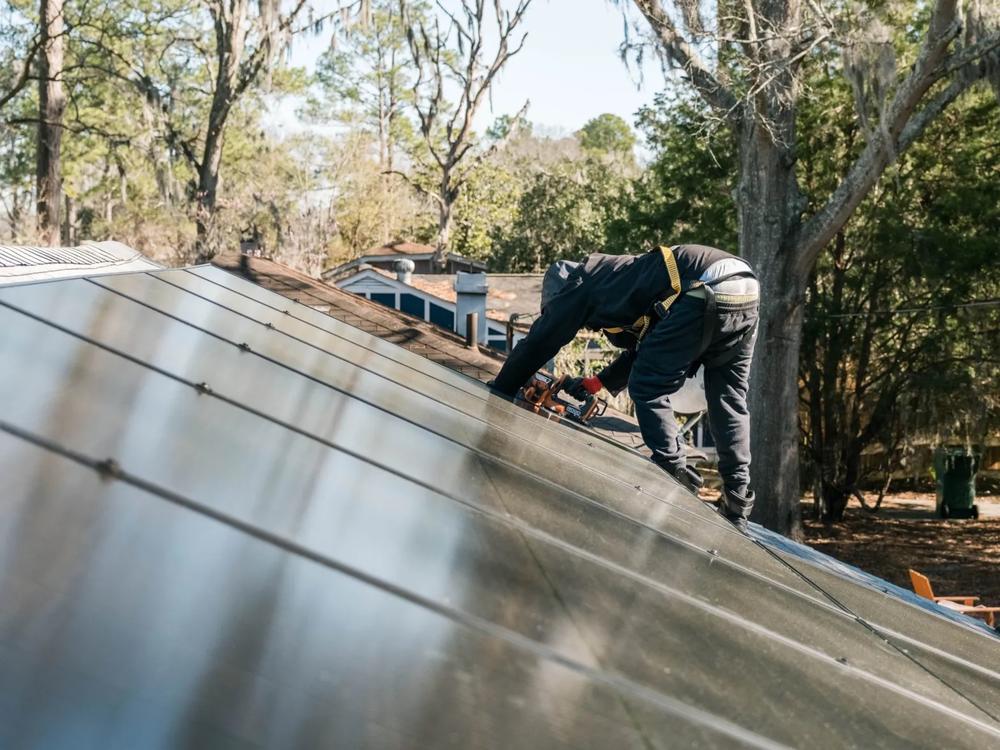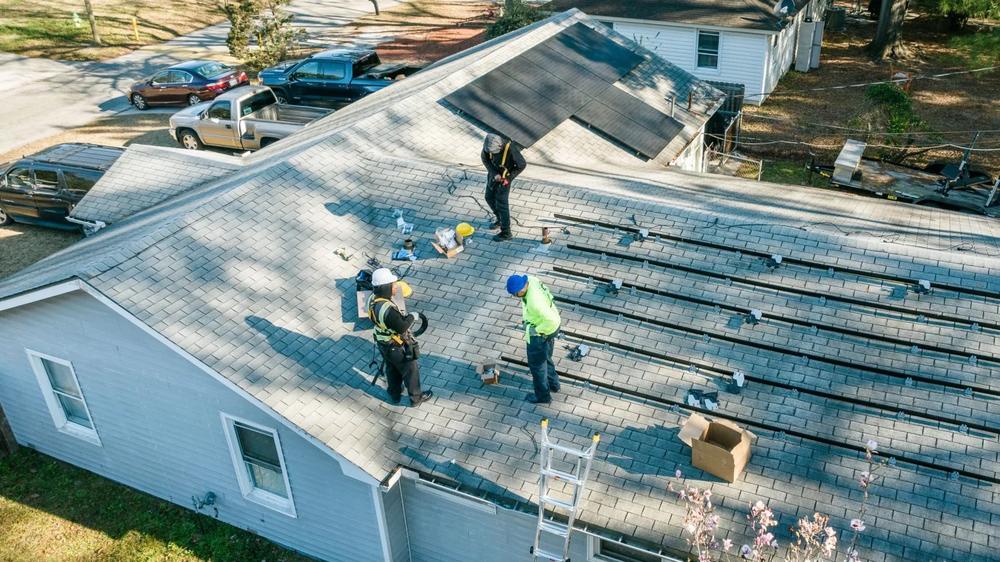
Caption
Homeowner David Morgan watches as solar panels are installed on his roof, Feb. 6, 2024, Garden City, Ga. It's part of a leasing program to provide low to moderate income Georgia homeowners with solar power.
Credit: Justin Taylor/The Current




